News & Media
Internationalisation, engaged scholarship ventilated at Lekgotla
As participants at the Principal and Vice-Chancellor’s Lekgotla continued to plot a course for Unisa in its 150th anniversary year, the institution’s international footprint and academic community engagement strategy came under the spotlight.
Enhancing Unisa’s international footprint
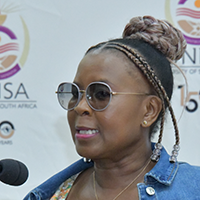
Siza Magubane, Deputy Director of Strategic Partnerships, Special Projects and Alumni in the Department of Institutional Advancement
Siza Magubane, Deputy Director of Strategic Partnerships, Special Projects and Alumni in the Department of Institutional Advancement, reflected on how the institution can leverage its brand and reputation to extend its internationalisation endeavours through collaborations, partnerships and internationalisation.
She stressed the significance of adding student-focused international partnerships to expose students to complex global environments, thus enhancing their academic scope. Magubane emphasised that internationalisation strategies should be at the core of the university’s objectives.
Magubane observed the momentous gains made by the College of Science, Engineering and Technology’s involvement in BRICS engagements, the UNESCO Chair on Open Distance Learning’s bilateral and multilateral engagements, and the institution’s participation in the European Union’s Erasmus+ programme. "These initiatives," she concluded, "are vital in enhancing intellectual capital for the individuals involved, the university, and its communities."
Towards shared community engagements
Deputy Director of Community Engagements and Outreach, Dr Genevieve James, said that the notion of community engagement is premised on very important development aspirations as set out in the South African National Development Plan, the African Union’s Agenda 2063, and the United Nations’ Sustainable Development Goals.
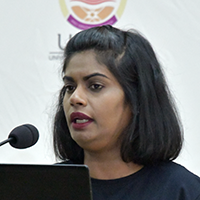
Deputy Director of Community Engagements and Outreach, Dr Genevieve James
"Academics continue in their endeavours to realise the desired Africa," said James, "but, so far, it is not yet Uhuru. Higher education institutions must not be elitist sectors devoted to the sole pursuit of knowledge creation, and must share that knowledge. It is therefore important that Unisa does not depart from its community engagement vision."
She added: "We are an engaged university, and we have made a choice to move from being dispassionate and detached. As we mobilise the knowledge that has been created by the institution, we do so believing that the total sum of what we do not know, is greater than what we know."
James underscored the social responsiveness element, saying: "Whether we are writing about human rights, water security, continental security or nation building, we must do so in an engaged manner in which we produce research that has higher social responsiveness."
She stated that as Unisa is the African university shaping futures in service of humanity, this must run through everyone’s consciousness, articulation, research and everything else done in the institution.
In conclusion, James said that to become an engaged university, there is a need for several paradigm shifts towards viewing community engagement as an orientation to teaching, learning and research, rather than a corporate social responsibility.
#Unisa150
* By Godfrey Madibane, Acting Journalist, Department of Institutional Advancement
** Photographs by Shooheima Champion, Multimedia Centre
Publish date: 2023-03-16 00:00:00.0


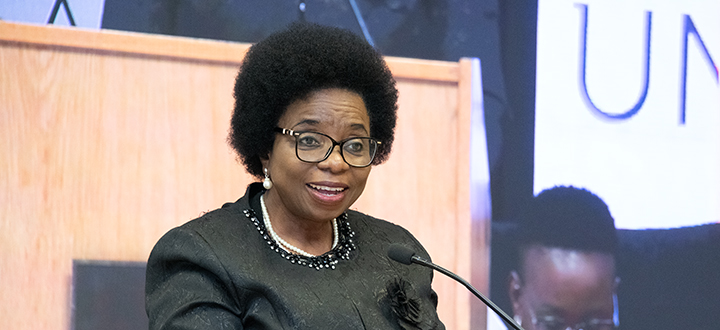 Future-proofing students for the coming digital wave
Future-proofing students for the coming digital wave
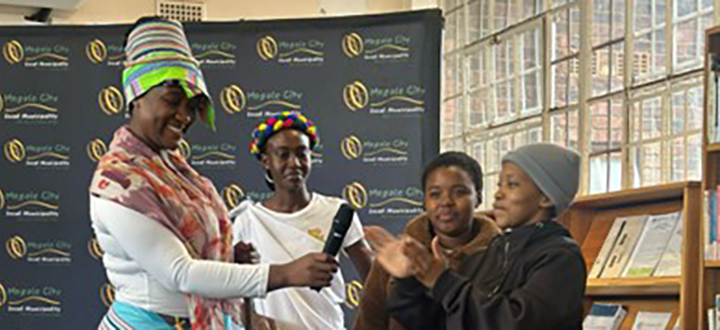 Unisa Library and Mogale City celebrate World Book and Copyright Day
Unisa Library and Mogale City celebrate World Book and Copyright Day
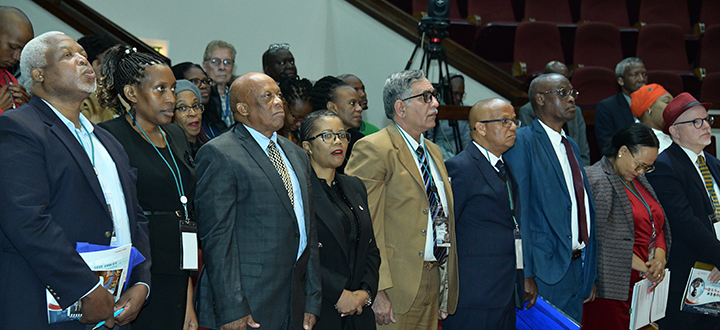 Groundbreaking Unisa conference examines how to connect minds and bridge gaps
Groundbreaking Unisa conference examines how to connect minds and bridge gaps
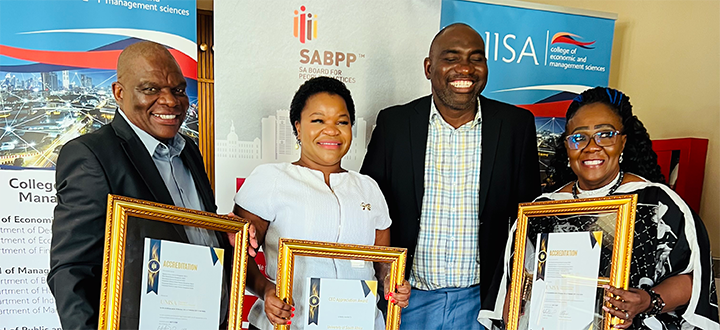 Unisan honoured with ultimate HR accolade
Unisan honoured with ultimate HR accolade
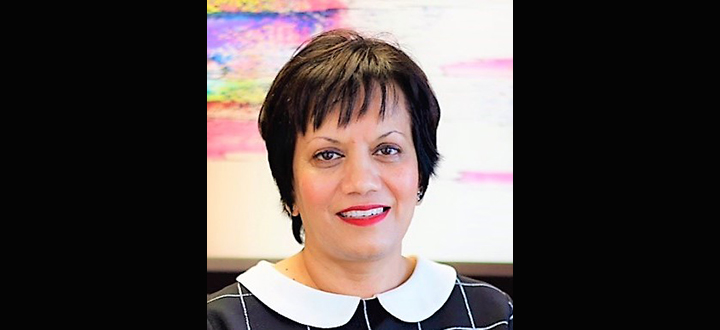 AI specialist to kick off Unisa’s Research and Innovation Week
AI specialist to kick off Unisa’s Research and Innovation Week